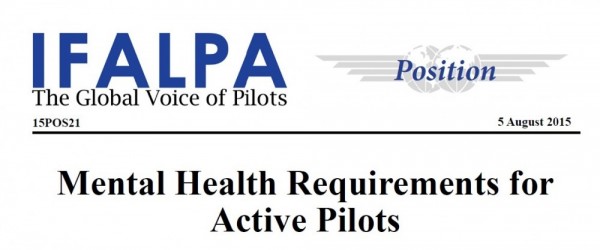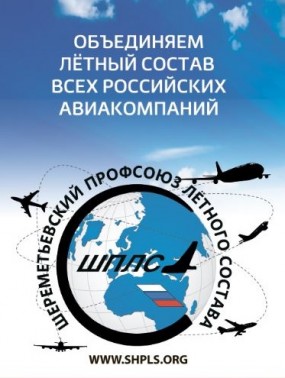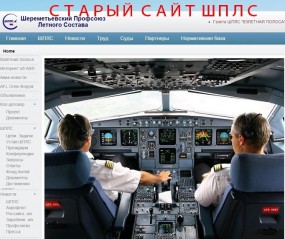Новости
Позиция IFALPA: О требованиях к психическому здоровью действующих пилотов

IFALPA considers that an extensive psychological/psychiatric evaluation, as part of the routine pilot aeromedical assessment, is neither productive nor cost effective and therefore not warranted.
Serious mental health illnesses are relatively rare among pilots and the onset of such illness is impossible to predict.
Routine psychological/psychiatric evaluation is a gross invasion of privacy and may impose more stress, threat and anxiety on the individual. Not all tests are culturally valid and screening tools are unreliable. Mental health assessment will only create the illusion of safety enhancement.
IFALPA recommends that systematic psychological/psychiatric evaluation should be limited to pre-employment testing. However, if substantial evidence indicates a need for further psychological/psychiatric testing, adequate safeguards should be mandated to protect the pilot; e.g. false positives or improper conclusions.
The psychological/psychiatric mental condition assessment should be performed by an unbiased accredited mental health professional, preferably familiar with the aviation environment and chosen and agreed upon by the individual concerned.
IFALPA strongly recommends that any decisions to undertake further evaluation be done in close consultation with the Pilot Association, the Pilot Assistance Program and medical authorities. Every psychological/psychiatric evaluation event should provide for a second expert opinion conducted by a trustworthy organization agreed upon prior to any testing. The second evaluation should only be necessary and conducted in the case the pilot does not agree with the first opinion.
Note: Where a Pilot Assistance Program does not exist, the judgment referred to in the above text should be left to the appropriate Member Association or local pilot group.
The results should be absolutely confidential and never be used as the sole source for refusal, revocation or non-renewal of license/medical certificate. IFALPA strongly supports behavioral assistance and job integration in conjunction with follow-up programs in this context. The use of Pilot Advisory Groups is highly recommended.
Position
15POS21
MENTAL HEALTH ISSUES DURING AEROMEDICAL ASSESSMENT OF PILOTS
As there is no “quick” method of assessing a pilot’s mental health during the aeromedical assessment, IFALPA recommends that an open and honest relationship be established between the pilot and the AME.
To encourage dialogue, it is recommended that no record of the conversation be retained (other than a notation that mental health and behavioral topics were discussed). This should be made clear to the pilot at the outset, thus increasing the likelihood of a frank discussion. It is to be expected that only rarely will any formal action need to be considered by the medical examiner to protect flight safety in the light of response to such questions, since the main aim is to discover behavioral patterns or mental aspects that are amenable to change before they adversely affect the medical fitness. Greater attention should be given to more common, predictable, and treatable mental health conditions and life stressors.
Note: In many cases, it will be possible for the pilot to receive behavioral assistance while maintaining a regular schedule.
Ultimately, the goal is to encourage pilots to consider their lifestyle and thereby improve the likelihood that they will remain in good mental health during their careers.
PILOT ASSISTANCE PROGRAMS
IFALPA is committed to the maintenance of an “inclusive” pilot assistance policy, dedicated to the promotion of the airline pilots’ health, well-being, and professional performance.
It has been demonstrated that Pilot Assistance Programs are effective for dealing with a wide range of problems experienced by pilots. Member Associations are strongly encouraged to establish these programs to assist their own members.
Pilot Assistance Programs provide trained peer support to fellow pilots, offering referral to appropriate professional resources and upholding strict confidentiality.
Pilot Assistance Programs are increasing in numbers throughout the world with the full support of the International Federation of Air Line Pilots’ Associations (IFALPA). A global network is growing that will ensure that no matter where a pilot may be in crisis, the assistance they need will be available.
©2015 The International Federation of Air Line Pilots’ Associations
IFALPA provides this data for information only, in all cases pilots should follow their company’s guidance and procedures. In the interests of flight safety, reproduction of this publication in whole or in part is encouraged. It may not be offered of sale or used commercially.
All reprints must credit IFALPA.















Комментарии